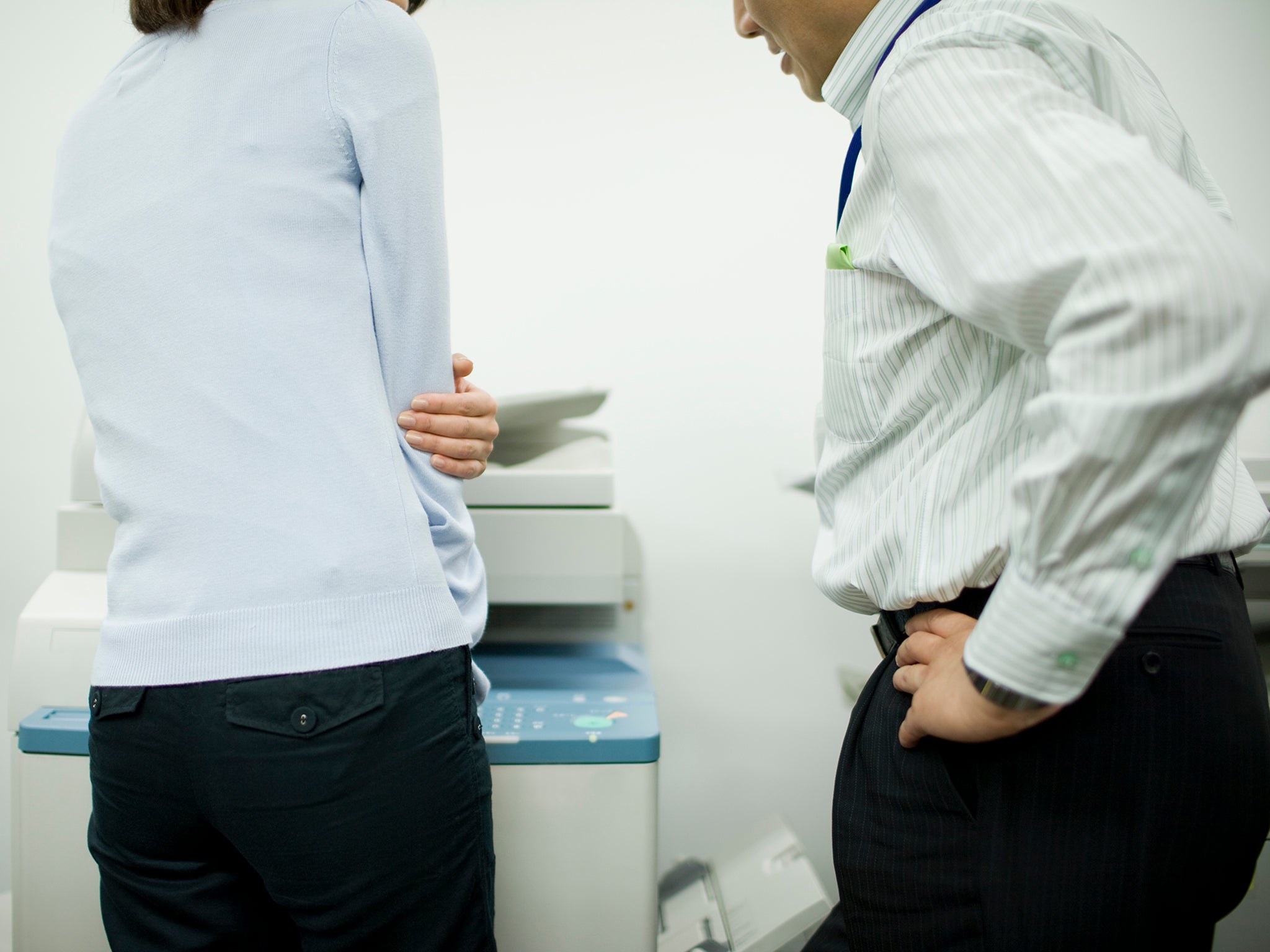Workplace sexual harassment increases risk of suicide, study finds
‘We know that sexual harassment in the workplace has devastating personal, professional and medical consequences,’ says senior legal officer at Rights of Women

Employees who suffer sexual harassment at work have a higher risk of death by suicide, a new study has found.
The report, which was published in The BMJ, suggests sexual harassment in the workplace needs to be deemed a substantial public health issue and an “occupational hazard”.
Researchers at Stockholm University found enduring sexual harassment at work was linked to a three-times greater risk of suicide and a two-times greater risk of attempted suicide.
“We believe no workplace can be considered safe unless it is free of harassment, and this issue cannot be sidelined any longer,” the authors said in a statement.
“Promising, evidence-based solutions exist and should be widely implemented and evaluated. Victims of sexual harassment should receive mental health screening and treatment to mitigate risks for subsequent mental health concerns and suicidality”.
The report argues mechanisms to tackle inappropriate behaviour at work could decrease suicide. It argues training programmes to tackle harassment and reporting or grievance procedures have been proved to do “more harm than good” and calls for new measures to stop and respond to harassment at work to be introduced as quickly as possible.
Researchers analysed 85,205 Swedish men and women of working age in paid employment who carried out a questionnaire between 1995 and 2013 which included questions about sexual harassment at work.
Some two per cent of all men and eight per cent of all women said they had suffered sexual harassment at work in the last year.
Although other studies have found a direct link between sexual harassment in the workplace and psychological distress, depression, and anxiety, researchers have rarely looked into the relationship between sexual misconduct and suicide.
Deeba Syed, senior legal officer at Rights of Women, a charity that provides free legal advice for women who have suffered sexual harassment at work, said: “This important research is extremely worrying, and sadly reflects Rights of Women’s own statistics.
“Over the past year, 15 per cent of callers to our free ‘Sexual Harassment at Work’ legal advice line had been signed off sick from work by a GP due to the mental health implications of being sexually harassed at work, and we fear this number is the tip of the iceberg.
“We know that sexual harassment in the workplace has devastating personal, professional and medical consequences. If the legal framework and protections against sexual harassment in the workplace were better, women would not fall between the cracks into sickness and mental health problems, employers taking preventative measures to protect women from harassment in the first place could not be more important.”
Data from the leading advice line released last week revealed almost half of women who are sexually harassed in the workplace are also sexually assaulted.
Almost two in three callers experienced further discrimination, retaliation and even punishment from their employer after suffering and or reporting sexual harassment. Rights of Rights of Women warned victims are treated with “systemic sexism and discrimination”.
To contact the Samaritans helpline, call 116 123. The phone line is open 24 hours, seven days a week.
You can also contact the charity by email by sending a message to jo@samaritans.org. The average response time is 24 hours.
Join our commenting forum
Join thought-provoking conversations, follow other Independent readers and see their replies
Comments
Bookmark popover
Removed from bookmarks